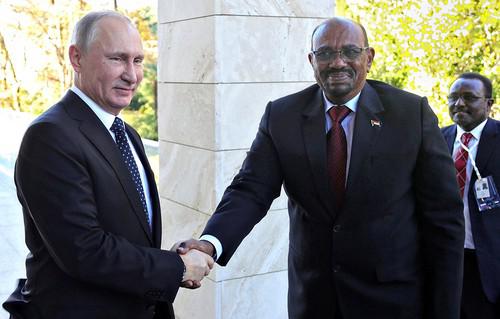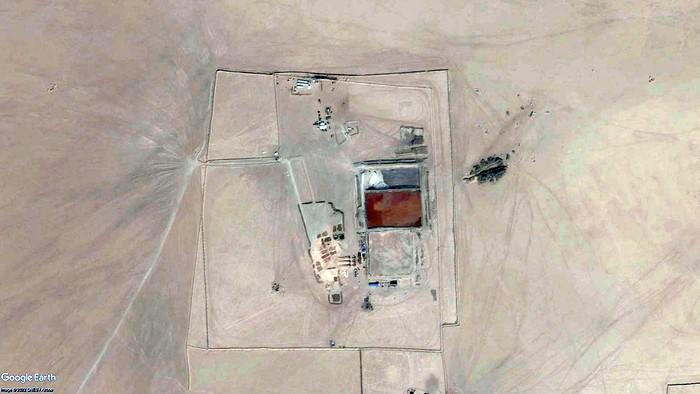OCCRP and Le Monde found out that the company “M Invest” Evgenia Prigozhina paid millions of dollars to a firm run by Sudanese military intelligence, and the state completely refused to participate in the gold mining projects of its subsidiary Meroe Gold.
Russia’s invasion of Ukraine has resulted in criticism, sanctions and unprecedented media attention on a number of influential figures close to Vladimir Putin. Among them is Yevgeny Prigozhin, an entrepreneur and restaurateur, who is also called “Putin’s cook”. In September 2022, he officially acknowledgedwho was the founder PMC Wagner, which is sent to war zones around the world. Mercenaries often fight on the side of units associated with the Russian government. PMC Wagner fighters are accused of murders and war crimes in Africa, Syria and Ukraine.
This year Bloomberg, The New York Times and CNN reported on the company Meroe Gold Limited, which is part of a network of companies associated with PMC Wagner. The military company reportedly supported the Sudanese armed forces to gain access to gold mines. OCCRP and Le Monde have leaked documents, including contracts, letters and internal correspondence, that reveal details of how Prigozhin’s parent company Meroe Gold paid millions of dollars to a Sudanese military intelligence firm in exchange for weapons and residence permits. for Russian employees. In addition, according to the leaked correspondence, Meroe Gold received benefits from the Sudanese authorities.
M Invest’s deal with the Sudanese armed forces looks especially dubious. The Sudanese army is illegal in the arms trade and is subject to “deep and systemic corruption,” says Andrew Feinstein, anti-corruption expert and author of The Shadow World: Inside the Global Arms Trade. .
“M Invest successfully uses illegal armed forces for criminal activities,” he said.
Richard Messick, a former World Bank official who now advises international organizations on legal development and fighting corruption, called Wagner PMCs and the Sudanese military “the worst of the worst in the global economy.”
“The question is how payments are made. [между ЧВК Вагнера и суданскими военными предприятиями]Messick said. “Both sides are truly dangerous, they should not be allowed to buy weapons anywhere. If weapons are paid for in gold, this should be done away with. And if payments go through the international financial system, then the sanctioning authorities must ensure that companies and individuals associated with them cannot hold accounts. [в банках]”.
Prigozhin has long denied any connection to Meroe Gold or the Wagner PMC. He even sued the mediawho claimed that the military company belonged to him. Only in September, the businessman admitted that he really founded it. Just then, videos appeared on the Internet in which Prigozhin recruited Russian prisoners for the war in Ukraine. Previously, Intercept journalists as part of a joint project with OCCRP described in detailhow Prigozhin tried to challenge the connection with the Wagner PMC through the British courts.
He did not publicly say that he owns Meroe Gold, but in July 2020 the company fell under US sanctions due to its connection with Prigozhin. The US Treasury said that Meroe is owned by M Invest, which was owned or controlled by Prigozhin. According to the US, “M Invest” served as a front for the activities of PMC Wagner in Sudan and received licenses to mine gold.
Mikhail Potepkin, who runs Meroe in Sudan, declined to answer questions from OCCRP. Emails sent to Meroe received an automatic response that they could not be delivered.
The same happened with letters to the Ministry of Defense and the Ministry of Energy and Natural Resources of Sudan. None of the telephone numbers could reach the ministries. Aswar was also unavailable for comment.

Shortly after founding Meroe, its parent company, M Invest, entered into a five-year contract with a military-linked security company in Khartoum. The company agreed to pay large sums for assistance with the entry of M Invest employees into the country, as well as for “security and security services.”
Based on contracts, other documents and internal correspondence, Aswar Multi Activity Co., Ltd. controlled by Sudanese military intelligence. The general director was Mohammed Qureishi Mohammed Al-Amin, a brigadier general in the Sudanese army. Judging by their social media profiles, former Aswar employees graduated from a Sudanese military college.
For security, as well as for assistance with the import and entry into Sudan of employees of M Invest and Meroe Aswar, 100 thousand dollars were supposed to be monthly, as well as 200 thousand dollars in advance as “voluntary compensation”. This became known from a copy of the agreement between M Invest and Aswar, provided to OCCRP by Mikhail Khodorkovsky’s investigative center Dossier. In addition, M Invest assumed all the taxes and fees that Aswar had to pay, as well as the salaries of its employees. In addition, M Invest paid Aswar $500 for each of its employees whom the company helped to enter Sudan.
The security company was supposed to “provide both sides with the necessary weapons and equipment through the Ministry of Defense of Sudan.” The annex to the contract says that Aswar will provide armored vehicles, large-caliber weapons, drones and communications equipment, although it does not specify how many weapons will be needed and where they will come from. The tasks of Aswar included the storage, transportation and clearance of weapons at ports and airports.
According to the documents, Aswar worked with the local airline Al-Riyadah, which had a subcontracting agreement with Meroe. The airline was responsible for transportation between Khartoum and the Central African Republic, where traces of the presence of Wagner PMCs are also visible. For transportation, they used a Russian-made An-26 aircraft belonging to the Sudanese armed forces.
According to a letter from Potepkin to the head of Sudanese intelligence in 2018, thanks to Aswar, aircraft leased by Meroe could fly under the signal code of the military. This means that commercial surveillance systems did not follow their flights. Potepkin mentioned the recent agreement between Aswar and the Air Force. According to him, it gave Meroe the right to land at a military base in Khartoum and permission to use “the signal code of the air force for external and internal operational purposes.”
According to Feinstein, the agreement with Aswar proves that Prigozhin’s companies were closely connected with the Sudanese armed forces.
“This tells us that Prigozhin is paying a private military company controlled by the government, and in return receives privileges with the ability to transfer them to a third party, weapons, travel for his people and the ability to use ports and air bases.”

The Aswar agreement remained in place even after the 2019 military coup, when al-Bashir was forced to step down. An Aswar memo dated May 2019 – a month after al-Bashir’s resignation – says that the Russian delegation from Meroe, which traveled from Khartoum to a plant in the Nile province, was accompanied by a “sergeant”.
precious gift
In Sudan, foreign companies that have obtained exploitation licenses are required to set up a natural resource enterprise if they find a deposit. According to local laws, the Ministry of Natural Resources receives a 30 percent share in such projects.
But in August 2018, al-Bashir did a startling service to Meroe by telling the ministry to give up its stake in the Russian company’s projects.
A couple of months later, the Deputy Minister of Natural Resources issued additional licenses to Meroe to mine gold and process waste products in three gold mining regions, while the ministry again refused its share. The company also received the rights to explore another promising field.
Former World Bank expert Messick doubts that al-Bashir’s government unselfishly gave up 30 percent of Meroe’s gold mining projects.
“When a foreign investment law is waived, one has to wonder whether it is because the foreign investor is so important that the government is desperately trying to attract it, or whether behind the unusual deal there is a side payment or some kind of service: for example, the ability to purchase weapons for powerful people,” he said.
The legal department of the Sudanese Ministry of Natural Resources did not agree with the president’s order to give up a 30 percent stake in one of the Meroe projects in advance.
Judging by the documents on the agreements between Meroe and the Ministry of Natural Resources, first the state share in the first of the gold mining projects passed to Sudan Mineral Trading (SMT), another company owned by the Sudanese armed forces, and only then went to Meroe.
It seems that SMT and Meroe were partners in the new project. But things progressed slowly. In early 2020, after the military arrested al-Bashir and removed him from power, Potepkin stressed in an official letter to the Ministry of Natural Resources that the agreement had not yet been approved. According to him, SMT was obliged to return 30 percent of the shares to the owners of Meroe. It is not clear how it all ended.
By partnering with SMT in gold mining projects, Meroe was likely seeking the support of Sudan’s powerful military, according to Feinstein, author of a book on the arms trade.
“Meroe is repeating a long-standing tactic of coaxing the military into exercising mining rights,” he told OCCRP.
By the end of 2020, Meroe was gaining a lot of attention, especially after the company was placed on US sanctions lists. Al-Bashir, who was president when Meroe was founded, is now on trial for his part in the coup that brought him to power.
In such circumstances, the company transferred the mining waste processing plant to a new company called Al Sawalij for Mining Ltd, which has no assets and only one employee – a former manager of Meroe Gold – and the only shareholder. Sources close to the Sudanese government told OCCRP that Al Sawalij is just a new front for Meroe owners.









